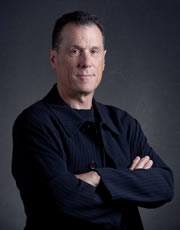
The history of creative expression is linked to the history of freedom. There is a connection between the state of artistic expression and the state of democracy.
I would like to put forward the notion that art schools should be the conscience of the art world…
-Ernesto Pujol, Art School: (Propositions for the 21st Century)
I received Art School: (Propositions for the 21st Century) as a gift last week. Somehow I had overlooked this book when it was first published, though individual chapters had somehow entered my consciousness over the last few years. As I began reading it, I was struck by how familiar the ideas in the book seemed. The tone of the chapters resonate with me in the way that things which seem to echo one’s own personal manifestos do. The idea that art can be useful and altruistic or egalitarian re-states the thread that runs through my teaching in general. The notion that art can be separate from commodification or commerce may seem quaint or naïve in the era we live in, however, it is an authentic gesture for generations of artists in the same way that folk music was actually about social change in its nascent form. And the notion that an art school or an institution that transmits the tenets and ideas that we refer to as art may dig in its heels and push back at the “marketplace” seems, on the surface, quixotic. However, in a democracy, one that is still free, the marketplace of ideas is still where such dialectics get hashed out; where creative individuals from varying points of view can argue their thesis, but consider that at times the greater good is achieved when one puts aside their own agenda to allow for agendas that are perhaps more inclusive and less dependable. Agendas always betray the inherent bias of those who offer them to a public. My own agendas reflect my world-view perhaps to a fault. However, I realize that my agendas are somewhat fluid as well. As a chair of an academic department, the need for day-to-day responsiveness tends to overtake some other long-term goals and replace them with new and pressing problems to solve.
One such pressing problem is advocacy; who needs it and who benefits most from it. Advocacy, the very idea of standing up for and speaking on behalf of those whose voices have less authority or less range, is about a sense of urgency on behalf of what one considers to be of the greatest good for those that most need such advocacy. It is a tautology; people and groups need advocacy because groups of people need to be advocated for.
Ernesto Pujol, the Cuban-born performance artist, social choreographer, and educator whose words I began this piece with states:
When was the last time we thought about possessing and exercising moral authority as art schools, in the U.S. and everywhere else in the world, as players in the national and international context—and how can this come about in our young century?
I would say that it can come about when we decide to press the issue. This might be a good time to do so.
Douglas Rosenberg
Chair of Art
